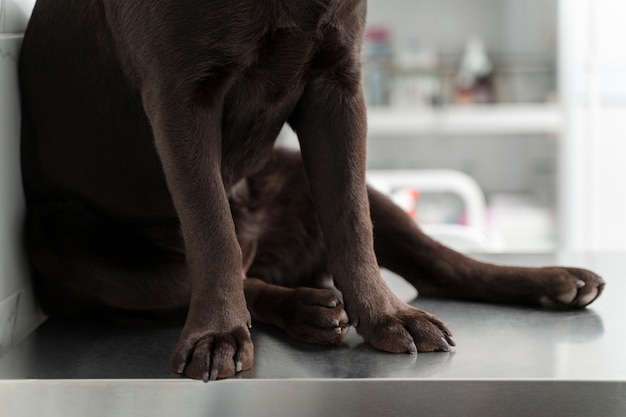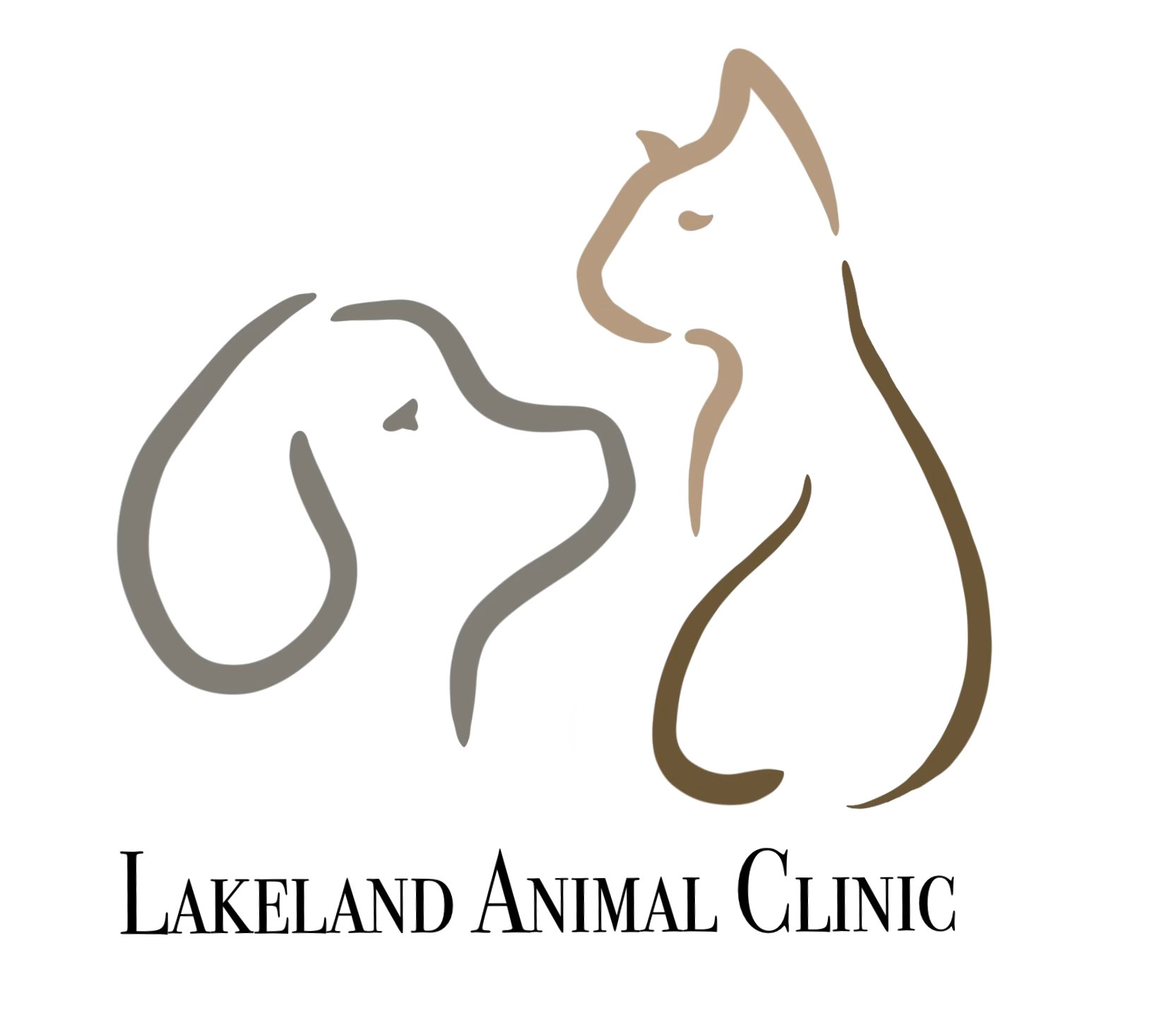Recognizing Signs of Pet Allergies and What to Do


Recognizing Signs of Pet Allergies and What to Do
Is your companion scratching more than usual, constantly licking their paws, or battling mysterious skin or digestive issues? If you notice these changes, you might be witnessing the first signs of pet allergies. At Lakeland Animal Clinic and Urgent Care, our veterinary professionals in 20690 Lakeland Blvd, Euclid, OH 44119 help families throughout Euclid and surrounding communities uncover the causes behind their pet's discomfort and find lasting relief. In this blog, we will guide you through common pet allergy symptoms, how to recognize when your pet needs help, and the best steps to take for prompt, compassionate care.
Understanding pet allergies can be challenging, especially with the ever-changing weather in northeast Ohio. From high pollen counts in the spring to indoor irritants year-round, pets in our community face a range of triggers. We will explain why these symptoms occur, when it is time to call a veterinarian, and how local veterinary services in Euclid support lasting wellness. If you are searching for a "vet near me" who truly understands the unique needs of your pet, our team at Lakeland Animal Clinic and Urgent Care is ready to help. To learn more about pinpointing the specific cause of your pet’s symptoms, visit our page on allergy testing for pets at Lakeland Animal Clinic and Urgent Care.
Spotting Pet Allergy Symptoms: What to Watch For
Recognizing pet allergy symptoms early is the key to helping your companion find relief. Allergies can show up differently in dogs and cats, but there are some common signs every pet owner should be aware of. Excessive scratching is often the first thing people notice, but allergies can also lead to frequent licking or chewing at paws, red or inflamed skin, and hair loss in certain areas. Some pets may develop ear infections, which often cause head shaking or a foul odor from the ears. Digestive symptoms like vomiting or diarrhea might also occur, especially with food allergies.
Other signs to watch for are sneezing, watery eyes, or a runny nose. These symptoms can be especially noticeable when pollen counts are high or after your pet has spent time outdoors in Euclid's parks and backyards. If you notice your pet rubbing their face against furniture or the floor, or if they seem unusually restless, allergies could be to blame. Occasionally, you might see small bumps or hives on the skin, which are signs of a more intense allergic reaction.
Understanding pet allergy symptoms in Euclid is important because untreated allergies can quickly lead to secondary problems, such as skin infections or chronic discomfort. If your pet’s symptoms persist for more than a few days, or if you notice any open sores or significant hair loss, it is time to schedule an appointment with your local veterinarian.
Differences Between Allergies and Other Conditions
It is easy to confuse allergy symptoms with other health problems. For example, flea infestations, fungal infections, or even some autoimmune disorders can mimic allergies. What makes allergies unique is their seasonal pattern, frequent recurrence, or links to certain foods or environments. If your pet’s symptoms seem to flare up after eating a new food, after a walk, or when the seasons change in Euclid, allergies are a strong possibility. However, the only way to know for sure is through a thorough examination and diagnostic workup by your veterinarian.
Understanding the Causes of Pet Allergies
Pet allergies develop when the immune system overreacts to something harmless in the environment or diet. The most common causes for pets in Euclid and the surrounding area include environmental allergens such as pollen, mold spores, dust mites, and grass. These triggers are especially prevalent in spring and fall, when pollen counts spike and outdoor activities increase.
Food allergies can be another culprit, with proteins in beef, chicken, dairy, or grains causing reactions in sensitive pets. Some pets may also be allergic to flea saliva, leading to intense itching after a single bite. Indoor allergens like cleaning products, perfumes, or cigarette smoke can also play a role, especially in homes where windows remain closed during colder months.
Genetics often influence whether a pet develops allergies. Certain breeds, such as retrievers, terriers, and some purebred cats, are more prone to allergic reactions. However, any dog or cat can develop allergies at any age. Stress, underlying health conditions, or changes in routine can also make symptoms worse.
Understanding these causes helps our veterinarians in Euclid develop a targeted plan for allergy relief. Through a combination of history-taking, physical examination, and sometimes specialized allergy testing for pets, we can pinpoint the source of your pet's discomfort and recommend the most effective solutions.
Why Are Allergies Common in Euclid?
Local climate and environmental factors in Euclid contribute to the prevalence of allergies in pets. Our region experiences all four seasons, with wet springs and leaf-laden autumns providing the perfect conditions for mold and pollen growth. Indoor heating during the winter can stir up dust mites, while rainy periods can increase mold exposure. All of these factors create a challenging environment for sensitive pets, making regular veterinary care in Euclid even more important.
Veterinary Treatment and Management of Pet Allergies
When your pet’s allergy symptoms interfere with daily life, professional veterinary treatment offers much-needed relief. At Lakeland Animal Clinic and Urgent Care, our veterinarians begin with a comprehensive examination, including a review of your pet’s medical history and a discussion of recent changes in their environment or diet. We may recommend diagnostic tests to rule out other causes or to identify specific allergens, such as through intradermal testing, blood tests, or elimination diets.
Treatment approaches for pet allergy symptoms in Euclid involve several strategies. For environmental allergies, regular bathing with hypoallergenic shampoos can help remove allergens from the coat and skin. We may prescribe medicated shampoos or topical sprays to reduce inflammation and soothe itching. Oral medications or injections are sometimes used for more severe reactions. In some cases, immunotherapy—where small amounts of an allergen are introduced to gradually build up tolerance—may be recommended.
For food allergies, our veterinary professionals guide pet owners through elimination diets, selecting novel or hydrolyzed protein foods to identify offending ingredients. Once the allergy is confirmed, a long-term diet free from those ingredients is recommended. If your pet is experiencing frequent ear infections or skin irritation, we may also address secondary bacterial or yeast infections with appropriate medications.
Our goal is to help your pet live a comfortable, itch-free life with minimal reliance on medication whenever possible. If you are searching for veterinary services near me that provide compassionate, family-focused care, our team at Lakeland Animal Clinic and Urgent Care is committed to finding the best solution for your pet.
Managing Flare-Ups and Emergencies
Occasionally, allergies can trigger more serious reactions, such as facial swelling, severe hives, or difficulty breathing. These situations are emergencies and require immediate veterinary attention. If you are ever unsure about the severity of your pet’s symptoms, do not hesitate to reach out for emergency veterinary care at Lakeland Animal Clinic and Urgent Care.
Home Care and Prevention: Steps You Can Take
While professional care is essential for diagnosing and managing pet allergy symptoms in Euclid, there are steps you can take at home to support your pet’s comfort. Regularly washing your pet’s bedding and vacuuming your home can reduce allergen buildup. Bathing your pet as recommended by your veterinarian helps remove pollen and dust after walks or outdoor play. Wiping your pet’s paws and coat when they come in from outside can minimize exposure to grass and pollen—this is especially helpful during high-allergen seasons in Euclid.
For pets with food allergies, carefully monitor ingredient labels and avoid giving table scraps or new treats without consulting your veterinarian. Maintaining a consistent routine and minimizing stress can also help reduce flare-ups, especially in sensitive pets.
If you notice that your pet’s symptoms consistently return at certain times of year or after specific activities, keep a diary to track patterns. This information can be invaluable when discussing your pet’s health with your veterinarian. Additionally, regular wellness visits are the cornerstone of preventive care, allowing early detection and intervention before allergies lead to more serious complications.
Supporting Your Pet Between Veterinary Visits
If your pet experiences mild itching, you can use a gentle, veterinarian-approved oatmeal shampoo to soothe their skin. Always avoid over-the-counter medications or home remedies unless specifically recommended by your veterinary team, as some products can be harmful to pets. When in doubt, schedule an appointment for expert guidance.
When to Call the Vet: Recognizing the Need for Professional Help
Knowing when to call the vet is crucial for effective allergy management. You should schedule an appointment with your veterinarian if your pet’s symptoms persist for more than a week, worsen despite home care, or interfere with daily activities like eating, sleeping, or playing. Warning signs that need prompt veterinary attention include raw or bleeding skin, repeated ear infections, significant hair loss, or any sign of pain.
If your pet shows signs of anaphylaxis, such as swelling of the face or tongue, vomiting, collapse, or trouble breathing, seek emergency veterinary care immediately. These reactions can be life-threatening and require urgent intervention.
For less severe but persistent symptoms, our veterinary team in Euclid offers thorough evaluations and treatment plans to help your pet feel their best. No matter the issue, our goal is to provide the most up-to-date pet diagnostics in Euclid and ongoing support for your family.
What to Expect at Your Veterinary Visit
When you bring your pet to Lakeland Animal Clinic and Urgent Care, our veterinarians will listen carefully to your concerns and perform a detailed examination. We may recommend allergy testing, skin scrapings, or dietary trials to get to the root of the problem. Together, we will develop a tailored treatment plan that fits your pet’s unique needs and your family’s lifestyle.
If you are searching for a "veterinarian near me" who offers comprehensive allergy care, look no further than our welcoming clinic in Euclid.
Compassionate Allergy Care Starts Here: Schedule Your Pet's Appointment
Pet allergies can be frustrating, but with attentive veterinary care and a proactive approach, your pet can live a happy, comfortable life. The caring professionals at Lakeland Animal Clinic and Urgent Care are ready to help diagnose, treat, and manage pet allergy symptoms in Euclid and surrounding communities. We encourage you to reach out as soon as you notice signs of discomfort—early intervention makes all the difference.
To schedule an appointment with our veterinary team, call (216) 731-5536 or visit us at 20690 Lakeland Blvd, Euclid, OH 44119. Our veterinarians are here to answer your questions, provide advanced allergy testing, and deliver gentle, effective care for your companion. For more information about our approach to allergy diagnosis, see our page on allergy testing for pets at Lakeland Animal Clinic and Urgent Care.
If you are searching for a "vet near me" who combines experience, compassion, and local expertise, trust Lakeland Animal Clinic and Urgent Care for all your veterinary services in Euclid. We look forward to helping your pet feel their best all year round.
This blog is for informational purposes only and is not a substitute for professional veterinary advice. If your pet is experiencing severe symptoms or you are concerned about their health, please contact our veterinary team promptly for an examination.



















